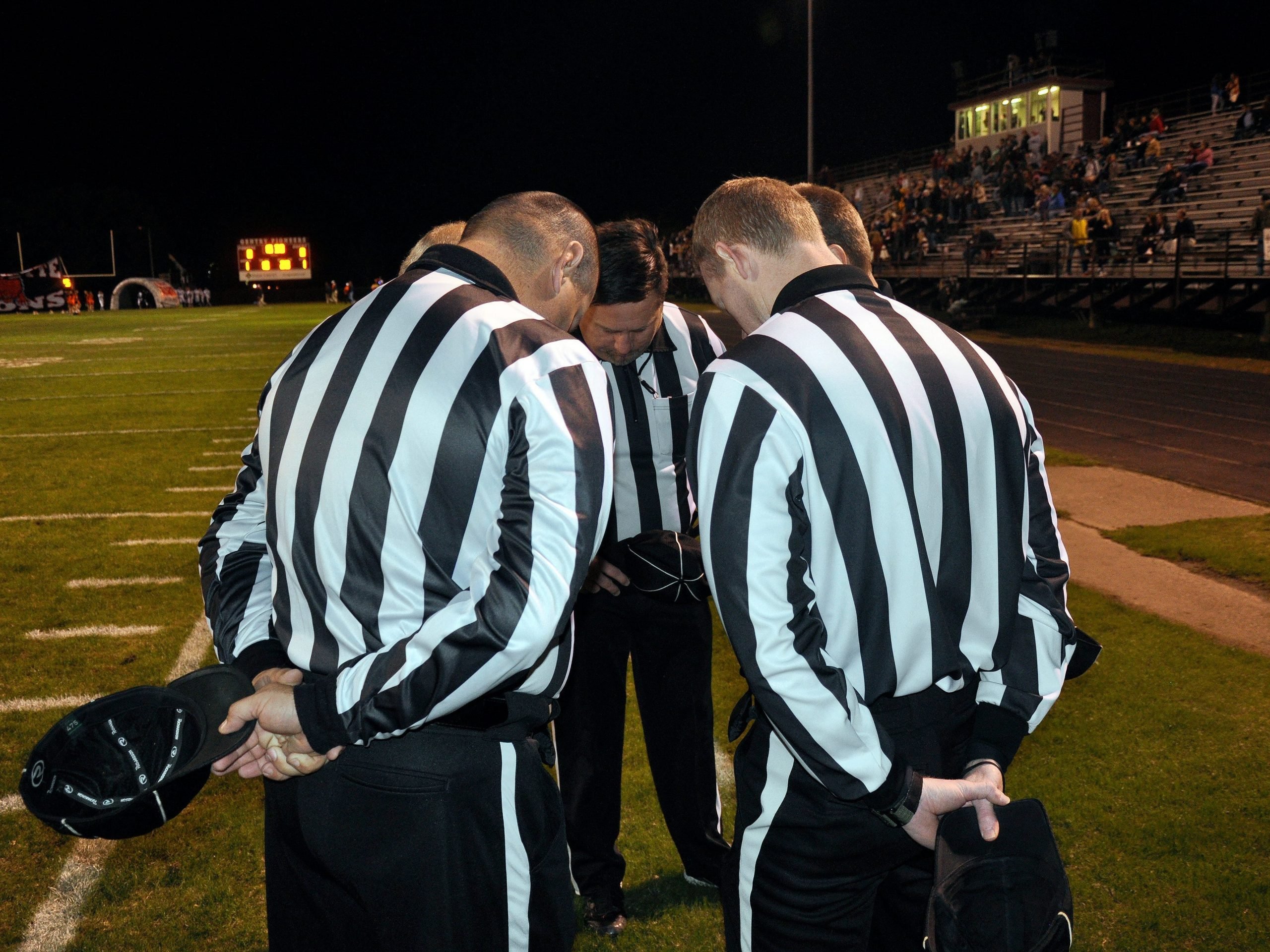
Kurt Voigt/Associated Press
- The pandemic, low pay, and abuse has triggered an exodus of referees from youth sports.
- The loss of hundreds of referees each season could lead to game cancellations and delays.
- Inexperienced referees charged with officiating fast-paced games could endanger players.
- See more stories on Insider's business page.
From a brawl breaking out at a youth baseball game to a furious coach screaming at and shoving an umpire, youth sports officials have had to deal with chaos on and off the field, on top of low pay for years.
But combined with the pandemic, referees are leaving youth sports at such a quick pace that it could lead to a disastrous shortage of officials this coming fall.
"There were so many referees quitting at an alarming rate before corona. With corona on top of it all, it's an epidemic of referee shortages," Brian Barlow, a soccer referee for 14 years and creator of Offside, a Facebook page that shames unruly parents, spectators, and coaches at games and advocates for respectful treatment of referees.
Seventy percent of referees quit within three years of starting, according to The New York Times, and 57% of referees surveyed thought sportsmanship was getting worse, with respondents saying that parents, coaches, and fans set off the biggest problems.
"A lot of referees in their first year quit because the parents, the coaches and the players are so hateful and say such awful things. They don't want the 40 bucks they're paid. If there's that much mental abuse, they don't want it. They're leaving." Barlow said. Referee numbers in soccer have dropped continuously for years, with Illinois losing 11% of high school referees in the 2018-2019 soccer season even as the number of young soccer players increases.
Peter Makeover, the CEO of Payball, an app for paying officials, coaches and event staff, said referees rarely earn a living from officiating, and most become officials to to earn extra money and stay connected to the game they love.
"But when they don't get that sense of connection, it simply isn't worth their time," he said.
The pandemic has also pushed a growing number referees out, with officials leaving out of fear of getting sick and others quitting over disagreements about masking requirements. The pandemic halted games in some sports for months, which sparked other referees to realize that the industry wasn't for them, Barlow said.
"A lot of them use it [the pandemic] as an excuse to not referee anymore. They're already getting burnt out. Then you realize 'it's nice not having people yell at me, judging me, and threatening me.'"
Barlow said the drop in referees is already having a negative effect, as games are getting cancelled and fewer referees officiate each game.
A decline in the number of referees could be especially damaging in contact sports like football, where the shortage has already resulted in inexperienced officials being promoted to work fast-paced varsity-level games, where a green official might struggle to signal penalties that could cause injuries for players, the Chicago Tribune reported.
"You have to get those fouls," Laurie Jordan of the Inter-Athletic Council of Officials, told the Chicago Tribune. "We don't want any players hurt or knocked out of the game. We don't want the possibility of concussions. When the game moves that much faster, the officials have to move that much faster, and it becomes very difficult."
Sports organizations and administrators have to hold coaches and parents accountable for their behavior and pay referees more if they want to have enough people to officiate their games, Makeover said.
But despite the looming fall season, there hasn't been a systematic effort to pay referees better or reduce the amount of physical and verbal abuse officials are subjected to, beyond isolated efforts in certain club teams or school districts.
"We've made it OK to treat officials who do a hard job like shit," Barlow said.
